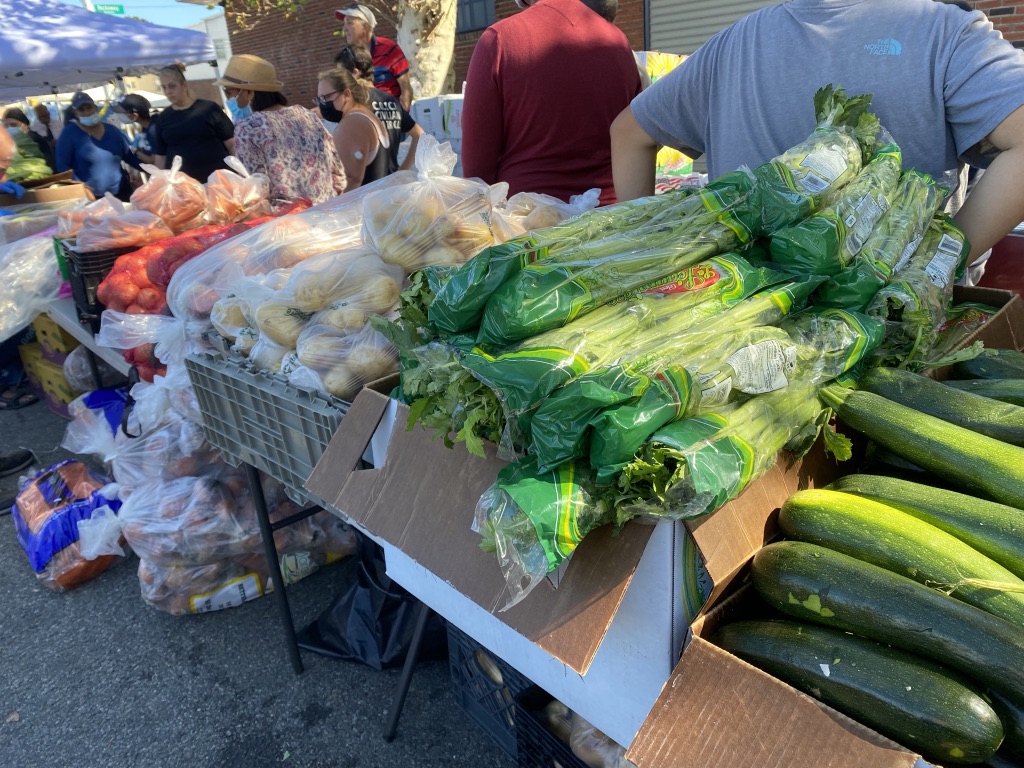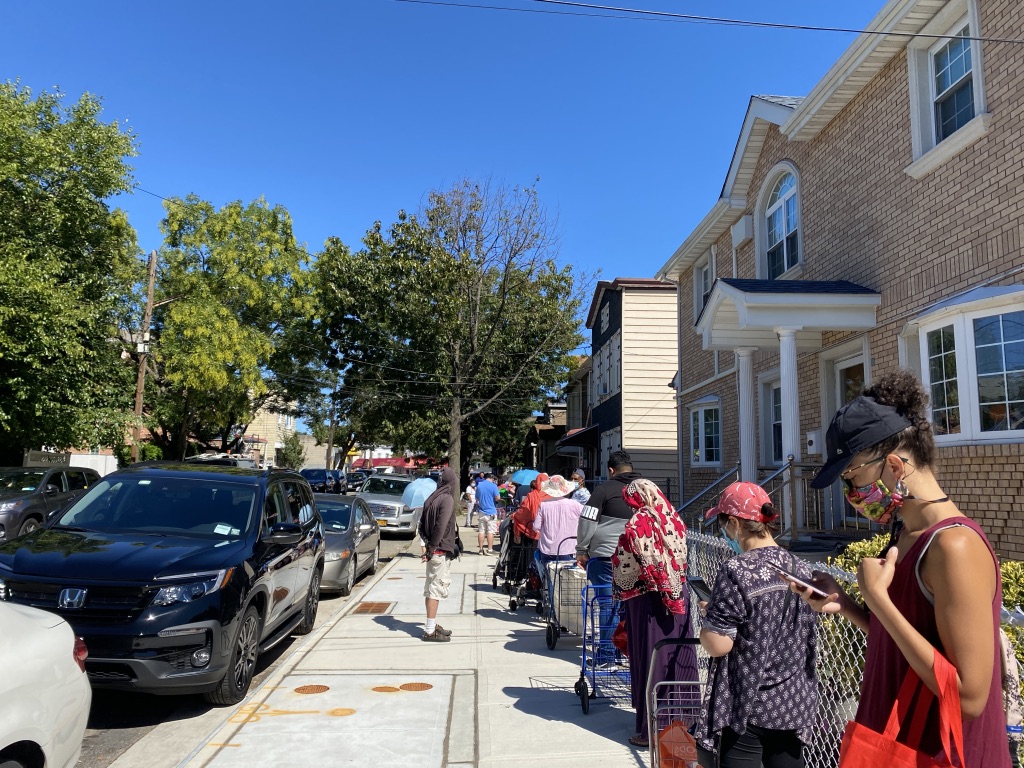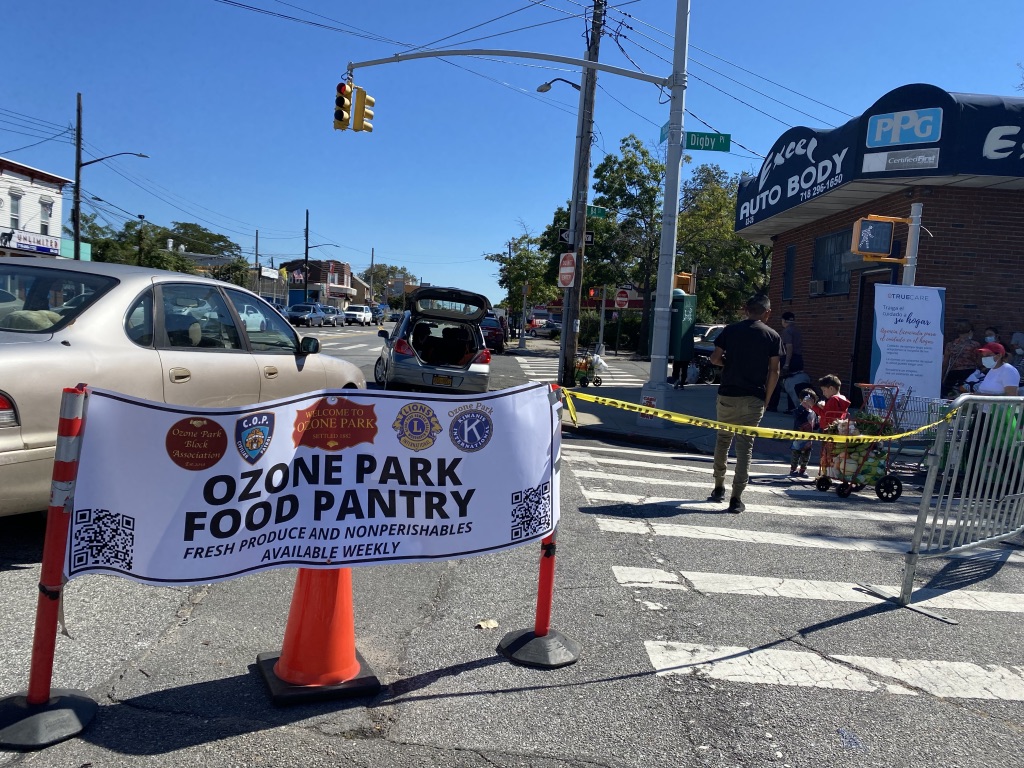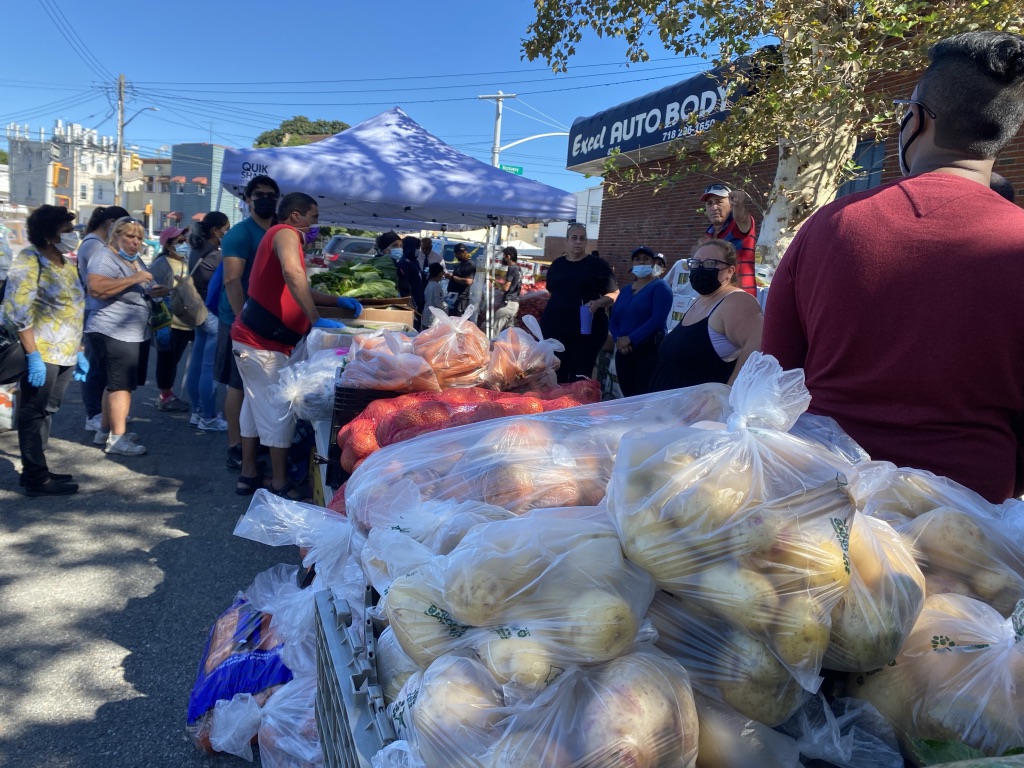Ozone Park’s fast-growing pantry provides an average of 40,000 pounds of food per week – QNS.com
[ad_1]
Sign up for our PoliticsNY newsletter for the latest coverage and to stay informed about the 2021 elections in your district and across New York
Over the past 17 months, an Ozone Park pantry has operated despite the rain and sun, and has grown into one of the largest Fully volunteer unfunded pantry in New York City.
Every Saturday without fail, volunteers have come forward for their community, enduring bad weather conditions, working during the holidays, and drawing on their own resources just to meet the needs of their community.
And the community response to the pantry has been remarkable. On Saturday, September 25, as the noon start time approached, the queue circled the block as hundreds of people waited with their empty shopping carts, some having been there for hours.
The Pantry was one of many operations across Queens created in response to the rampant food crisis linked to the COVID-19 pandemic.
What is now a large-scale operation started out as a simple delivery service providing food to around 80 people.
As the need for food increased, organizations such as the Ozone Park Block Association and Cityline Ozone Park Civilian Patrol (COPCP) have teamed up to tackle the problem.
When the pantry started in March, it served around 100 families, but following layoffs and closures, it began serving thousands of families.
At the height of the pandemic, the pantry served around 2,000 people. This month, they average about 1,100 people and distribute about 40,000 pounds of food per week.
For a while there were no deliveries and volunteers had to go out every day of the week to pick up food for Saturday, according to COPCP social media manager Daniel Hill.
“Now luckily we get deliveries from food banks, but at the very beginning we would go to other pantries and take their leftovers and whatever they weren’t giving, â€Hill said. “It was difficult at first because we saw other pantries in the area being favored by the mayor’s office, and they weren’t even using all the food.”

Before individuals reach the first line, names and addresses are saved to a clipboard before receiving a ticket to enter. The ticket system not only serves to regulate the line, but also provides the number of people served for each Saturday. . People with disabilities are allowed in first and are given assistance with their food, and there is a separate queue for the elderly.
After starting the pantry, Ozone Park Block Association president Sam Esposito noticed that the majority of volunteers were white or Hispanic, but did not represent the rest of the various groups of people they served.
“My goal was to bring people together, so we started saying on Facebook that we needed volunteers, and the next thing you know, we have white, black, Chinese, Guyanese, Bengali, Catholics, Muslims, Jews, Hindus, Gays. and directly, â€Esposito said. “It’s a family we started, and everyone here learned to get along – something we never did in this neighborhood because it was always us versus them.
While the pantry was created in response to the pandemic, there was still a need in the community, but it was “simply ignored,” according to Iqbal Ali, president of Cityline Ozone Park Civilian Patrol. He felt that some ethnic communities were excluded from the conversation, such as the Bangladeshi community.
“The diversity was there, but I had the impression [certain communities] have always been underserved, â€Ali said. “Now we have seats in different organizations, we work with the NYPD, we work with elected officials and we work with all the boards of directors. Bangladeshis, Spaniards, Asians, whatever you want, everyone is sitting there working together.
Diversity and unity despite cultural and religious differences is a big part of Pantry’s success, and they want the food they provide to reflect that as well.

Volunteers arrange the food on the table and allow people to choose what they want to take with them. Because there is such a diverse group of people online, not everyone can eat the same thing.
“We need to focus on what we have and what each community can eat,†said Mohammad Khan, executive director of the pantry. “The Muslim community cannot have meat because it is not halal, which we can only get sometimes. We also serve a large Hindi community, and they can’t have beef or pork, so we have to answer that. “
A Muslim herself, Souad Bouhayat is one of the volunteers who take care of the selection of halal foods. After queuing for food during the pandemic, she was touched by what the organizations were doing and decided to come back as a volunteer.
“We start to build a relationship with the people who come into the pantry, and they start to cook for us, to share with us what they take from the pantry, and I’m very touched to know that we can make a difference in some way by donating a bag of food, â€Bouhayat said.
As you walk down the line, you might hear people speaking a dozen different languages, but there is always a translator for those who need it.
“We have a total of 15 languages [the volunteers] talk, â€Kahn said. “We have English, Bengali, Spanish, French, Arabic, Guyanese, Italian, Hindi, Chinese, Haitian and many more. We are a big language community here, so we always have someone to help us.

While the operation now has nine pantries supplying them, as well as GrowNYC and the food bank, all other expenses – such as gasoline, transportation, supplies and compensation – are covered by Esposito. and Ali.
Even though some organizations deliver to the pantry, volunteers still have to pick up food throughout the week from various outlets, and it’s no different on Saturdays – volunteers are constantly leaving throughout the week. day to collect food and restock their supplies to make sure there are enough. for everyone. Organizers spend between $ 1,200 and $ 1,500 out of pocket each week.
Pantry manager Patricia Raghunandan said it was difficult for organizers and volunteers to depend solely on other pantries and their own personal resources to get things done, but volunteers willingly sacrifice their time and their resources for free.
“When you hear these personal stories from people online, there’s nothing stopping you from getting up in the morning, coming here and doing it day in and day out,†Raghunandan said. “We are doing it because these people need it. “
The Ozone Park Pantry opens at noon every Saturday at Digby Place between Rockaway Boulevard and 97th Avenue (83-10 Rockaway Blvd.).
No RSVP is required to queue or volunteer.
[ad_2]

